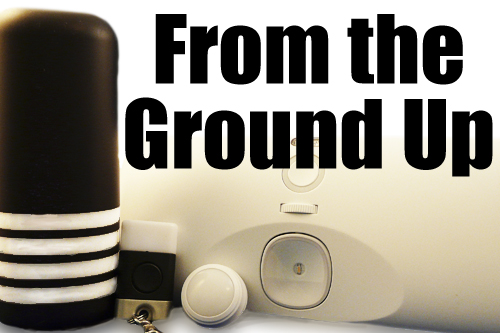 Loading... Please wait...
Loading... Please wait...- Home
- Bright Ideas
- Canadian Customers
-
Blog
- 4 Tips to Make Motion Sensors Work for You
- How Do LEDs Work?
- How Jenesis Reinvented Fire
- How to Dispose of Batteries Properly
- Jenesis Flahslight Lights Up Indiegogo
- Those Darned Motion Activated Faucets
- What do Those Electric Candles Actually Look Like?
- 9 Ways to Avoid Getting Ripped Off on Battery Lighting
- How to Avoid Getting Ripped Off on Battery Lighting – Advanced Course
- Battery Warnings to Take Seriously
- How is Battery Life Calculated?
- How to Use the Deck Marker Light
- How to Use the Glow Fob and Guide Light
- How to Use the In-Cabinet Light
- How to Use the Motion Deck Light
- I Made the In-Cabinet Light
- I Made the Motion Deck Light
- In-Cabinet Light Backstory
- In-Cabinet Light Testing
- Investing in Product Development
- Meet the Interns
- Motion Deck Light Backstory
- What is Low Glow?
- About Us
-
Contact
Popular Brands

Investing in Product Development
Jenesis holds over thirty patents with a 90% acceptance rate on new patent applications. Many of the products developed by Jenesis’ engineers since the founding of the company and in their previous corporate jobs are still on the market, some after nearly 20 years. These numbers probably don’t mean much to you unless you’re an industry insider, but consider this: on average 90% of new patent applications are rejected, and most new products are out of production within five years of their release. How has Jenesis managed to rack up these impressive successes, despite its small size? Founding member and company president Brad Jensen shares his thoughts.
“In the beginning [our original corporate employer] was spending a huge amount on product development. Then the sales started to kick in, doubling, tripling, and quadrupling and I could see it coming where all we could do is keep up with what we had. We weren’t really doing new stuff. One of the last things I did [before leaving to form Jenesis] was set up a couple people on the side whose task was to work on new products, new markets, new directions that they could go in.”
“But most companies are really in a pinch to save money, and it’s like ‘whoa, we can’t afford to do that, that would cost a lot.’ And there’s no trust that giving people some freedom and time they could do something profitable and useful. So you wind up in a scenario where all you’re doing is taking all of your existing products and doing little tweaks. And the next thing you know you’ve sucked up all of your time doing things that need to be done, but you don’t have all that creative time.”
“There’s sort of an assumption that creativity is a momentary inspiration, and sometimes it is. More often, though, it’s when you can take hours and hours of time to focus on something, and in the middle of that you get a spark of inspiration that becomes your answer. But you don’t really get it just while you’re busy trying to do your daily tasks.”
“It’s like when we started the window candles. The few electronic candles on the market were just terrible. They’re main redeeming quality was that they were cheap. But we started pounding away on what we could do to make a good electric candle. We went through all kinds of iterations. Some of the early concepts were awful, but it was just grinding through the details. And all of a sudden you’ve gone through fifty of these iterations and you have something that looks like a pretty good product."
"We knew that for the battery candle to be successful it had to have a good looking flicker, but there was nothing available on the market that would do that. So we spent hours painstakingly trying to figure out what it should look like. We knew that if it got good battery life, if the product style looked good, and it had a pleasing flicker, it would be a successful item. But the products on the market were so far from that that anyone who was trying to do it for the first time would have to spend months of work. And no one was willing to spend that much labor on something as simple as a window candle. But all of a sudden battery candles went from being a hundred thousand dollar product segment to a ten million dollar market, just because we took the time to ask ‘what makes a really good product?’ and spending the investment up front to make that happen.”
“The reality is doing something new takes a huge amount of time. Part of the reason why Jenesis is here is that most companies aren’t willing to dedicate resources to go search out new opportunities. Most companies say ‘oh, you want to spend a hundred-thousand dollars to go pursue new opportunities? What is it going to be? How much will it earn? When will it be done?’ And you wind up with this trap where everyone wants to say ‘if you’re going to spend that money, you need to generate X million dollars.’ So that kind of research never happens. That’s what’s created an opportunity for Jenesis. We do a lot of front end work in new product areas that no one else would ever pay us to do. Maybe in the future they will, when they see the kind of track record we’ve had.”
Contact Jenesis: Email Facebook





